Narada Muni
Nov 03, 2019 • 404 views
Narada Muni, the messenger of gods, is popular for gossiping and spicing up facts and that later became the root of several controversies. Though he is always depicted as wise and mischievous, in reality he was intelligent and possessed powerful memory. Narad Muni was the son of Lord Brahma and Mata Gayatri. His siblings include the four Kumaras, Daksha and Manu. He is also referred to as the king of all sages or rishis, meaning Rishiraj. He was gifted with the boon of knowledge, past, present and future. Narad is a slender sage whose appearance is very simple. He is portrayed as tying a dhoti around his waist and holding a tanpura in one hand and a khartal in his other hand. Narada was a bal brahmachari, i.e., he took the path of celibacy in his childhood and never got married.
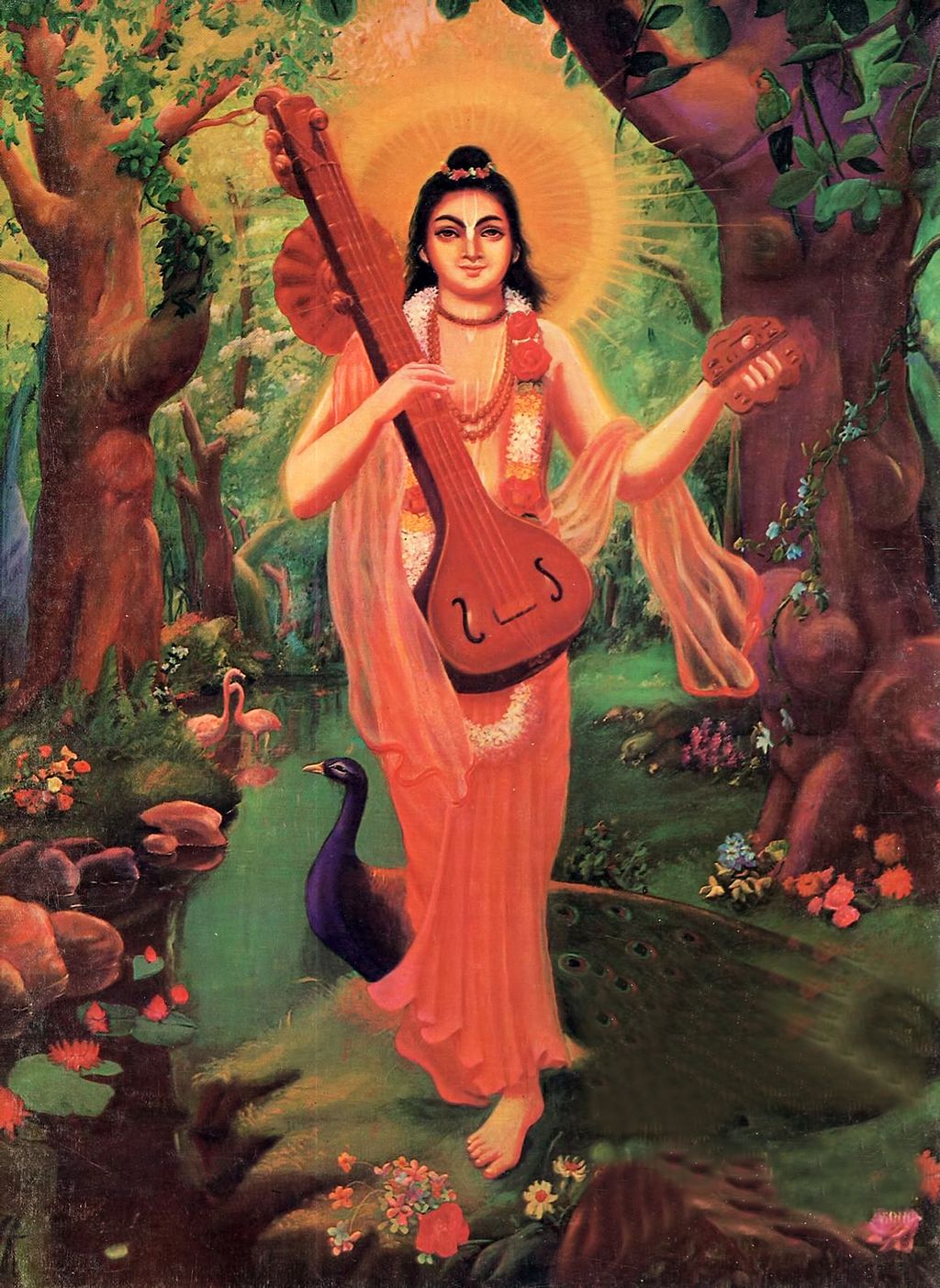
source:- back2godhead.com
Knowledge and reason for his creation
Narad’s personality is very knowledgeable and filled with wisdom. He is the greatest devotee of Vishnu and keeps chanting his name as ‘narayan narayan’ everytime. Vaishnav enthusiasts or vaishnavites hail narad as a pure, pios and elevated soul who glorifies vishnu using his devotional songs and hymns.The Bhagavata Purana describes the story of Narada's spiritual enlightenment. He was the primary source of information among Gods, and is believed to be the first journalist on Earth. In the Mahabharata, Narada is portrayed as being conversant with the Vedas and the Upanishads and as acquainted with history of Puranas. He has mastery of the six Angas: pronunciation, grammar, prosody, terms, religious rites and astronomy. All celestial beings worship him for his knowledge - he is supposed to be well versed in all that occurred in ancient Kalpas (time cycles) and is termed to be conversant with Nyaya (logic) and the truth of moral science. He is a perfect master in re-conciliatory texts and differentiating in applying general principles to particular cases. He can swiftly interpret contraries by references to differences in situation. He is eloquent, resolute, intelligent and a possessor of powerful memory. He knows the science of morals, politics; he is skilled in drawing inference from evidence, and very proficient in distinguishing inferior things from superior ones. He is competent in judging the correctness and incorrectness of complex syllogistic statements consisting of five proponents. He is capable of arriving at definite conclusions about religion, wealth, pleasure and salvation. He possesses knowledge of this whole universe and everything surrounding it. He is capable of successfully answering Brihaspati himself, while arguing. He is a master of the Sankhya and Yoga systems of philosophy, conversant with sciences of war and treaty and proficient in drawing conclusions by judging things not within direct knowledge. He knows about the six sciences of treaty, war, military campaigns, maintenance of posts against the enemy and strategies of ambushes and reserves. He is a thorough master of every branch of learning. He is fond of war and music, and incapable of being repulsed by any science or any course of action. Narada was created out of the imagination of Brahma,to impart knowledge into the world and act as a symbol of control and renunciation from the material world to attain salvation and unity with god. He went around encouraging everybody to renounce the world and become ascetics and attain liberation from all things material.
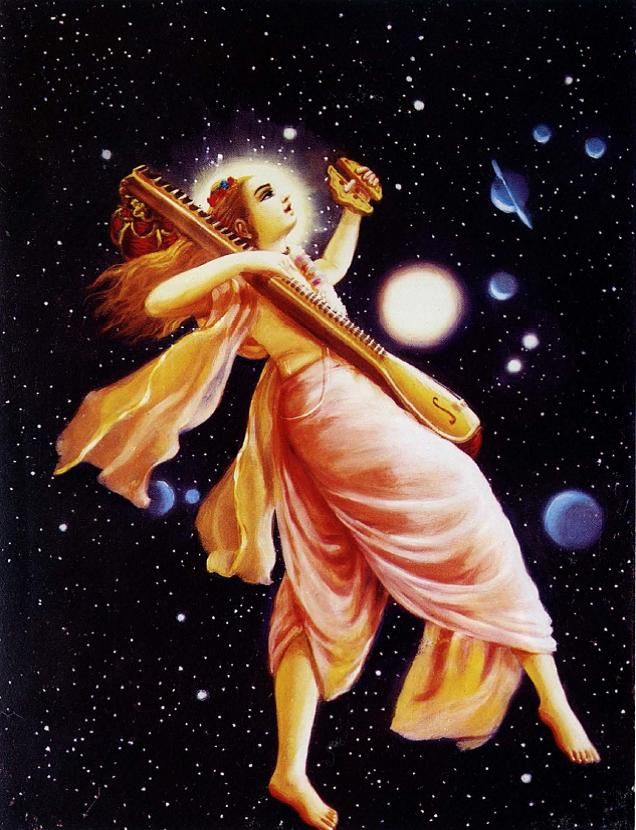
source:- theharekrishnamovement.org
Curse given to Narad
Narad is not only devotional but is also known for his mischievous character that often results in quarrel between gods, goddesses and individuals. He travels between the realms of gods, demons and humans, gossiping about what he has seen, and willy-nilly creating trouble. Though he was the sole informant of the gods, but once his knowledge became a hindrance for the Gods, he was cursed that even if he will speak the truth, no one would believe him and he will be the source of quarrels between individuals.
Narada’s curse to Vishnu
Narad Muni was the greatest devotee of Lord Vishnu but there was a time when he got really angry over his Swami and cursed him. The tale, mentioned in Shri Ramcharitmanas by Tulsidas, goes by like this that once Lord Shiva blessed Narada to meditate in Tapovan, a forest for tapasya (meditation), and no one would be able to disturb him. He started his meditation and this became a matter of concern to Lord Indra as he was worried about his aim of meditation. To disturb him he decided to send Agni (the god of fire), Varuna (the god of rain) and Vayu (the god of wind). Thus they began their task. Varuna made it rain, Vayu made the wind blow and later Agni lit the place on fire. But of no use and all of them returned to heaven. Indra then approached Kamadev, the god of Love, to disturb him. He tried every possible thing from beautiful dancing girls to buzzing bees to birds humming. It was an atmosphere of love. But Narad remained unaffected. He defeated everything not with Shiva’s blessings but due to his attainment. After completing the meditation, proud Narada met Lord Shiva on Kailash and boasted how he defeated Agni, Vayu, Varuna and Kamdev. All that Shiva had to say was not to say anything to Vishnu. But Narada couldn’t resist and boasted everything before Vishnu. To which the latter replied, “Be on guard.” Narada was so happy that he couldn’t read Vishnu’s mind.
On his way back he visited King Sheelanidhi’s palace and was informed about princess Shrimati’s swayamvar. He fell in love with the princess the moment he saw her and wished to marry her. On reading her fortune he came to know that whoever marries the princess would be the king of the three worlds. He approached Vishnu for help and requested him to make him look like Vishnu’s avatar ‘Hari’ the most handsome prince in the ceremony so that the princess chose him as her companion.Finally the day of ‘Swayamvar’ arrived. Narada dressed in a royal avatar walked confidently in the ceremony. He knew he was the most handsome and the princess would choose him. But after looking at his face the princess burst out laughing and walked past him and then gave the garland to the last king, Lord Vishnu. This didn’t go well with Narada and told the princess that he deserves the garland. Everyone at the ceremony teased him and asked him to look into the mirror. After looking in the mirror he was in for a surprise as he was not a handsome looking man but a monkey.
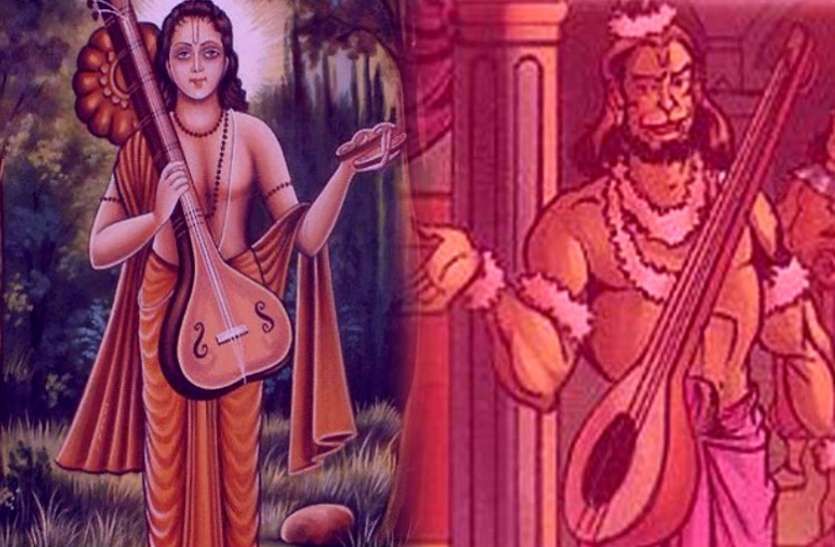
source:- patrika.com
Unfortunately, Narada was unaware of the fact that Vishnu’s another name ‘Hari’ also meant a monkey.Narada was annoyed and asked Vishnu the reason behind his act. He said, “I asked you to make me the most handsome prince but instead you turned me into a monkey. And because of you I have lost the love of my life.” Later he cursed Vishnu that he would also lose his beloved and will experience the pain of separation. And only monkeys would help you to get your love back.” To which Vishnu smiled and accepted the curse. He said he will take birth as a human being and Goddess Lakshmi will be his wife and they both would endure separation.
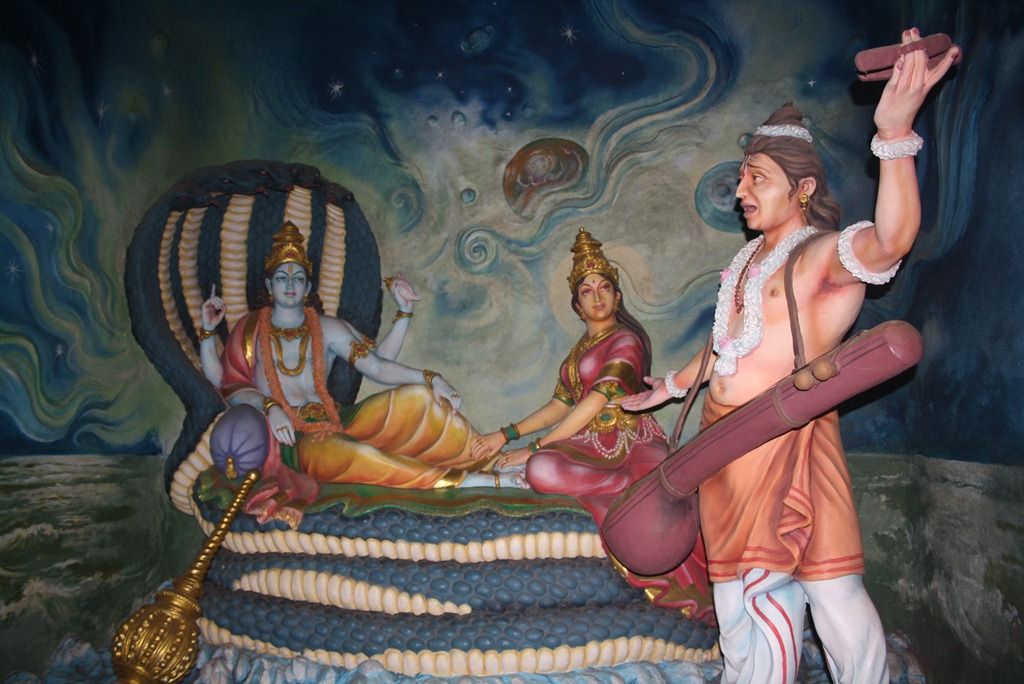
source:- researchut.com
Narad Puran and Narada Smriti
The Narad Puran and the Narada Smriti are the two texts associated with Narad. While both these texts follow the Dharmashastra tradition, it is Narada Smriti, which gained much recognition. Narada Smriti is pre 6th century CE text that follows or rather serves as the base of the Dharmashastra tradition. It is said that the original text (that later evolved as Narada Smriti) comprises of one lakh shlokas and around 1080 chapters discussing about the creation of the universe, the social laws, judicial system, political laws, renunciation, family and household, women and children, gods and deities, king and his kingdom, duties of king and citizens among others. It is then said to be handed over to Narad Muni, who reduced it to 12000 shlokas and compiled it Narada Smriti. Narad Muni then handed over the text to Rishi Markandeya, who further edited it to 8000 shlokas and compiled it into Markandeya Purana. Rishi Markandeya then handed over the text to Sumati, son of Rishi Bhrigu and reduced it to 4000 shlokas. The present text of Manusmriti has 2635 shlokas and 12 chapters. This Manusmriti is considered as a guide to an ideal life and society but at the same time open to many criticisms in the contemporary times.
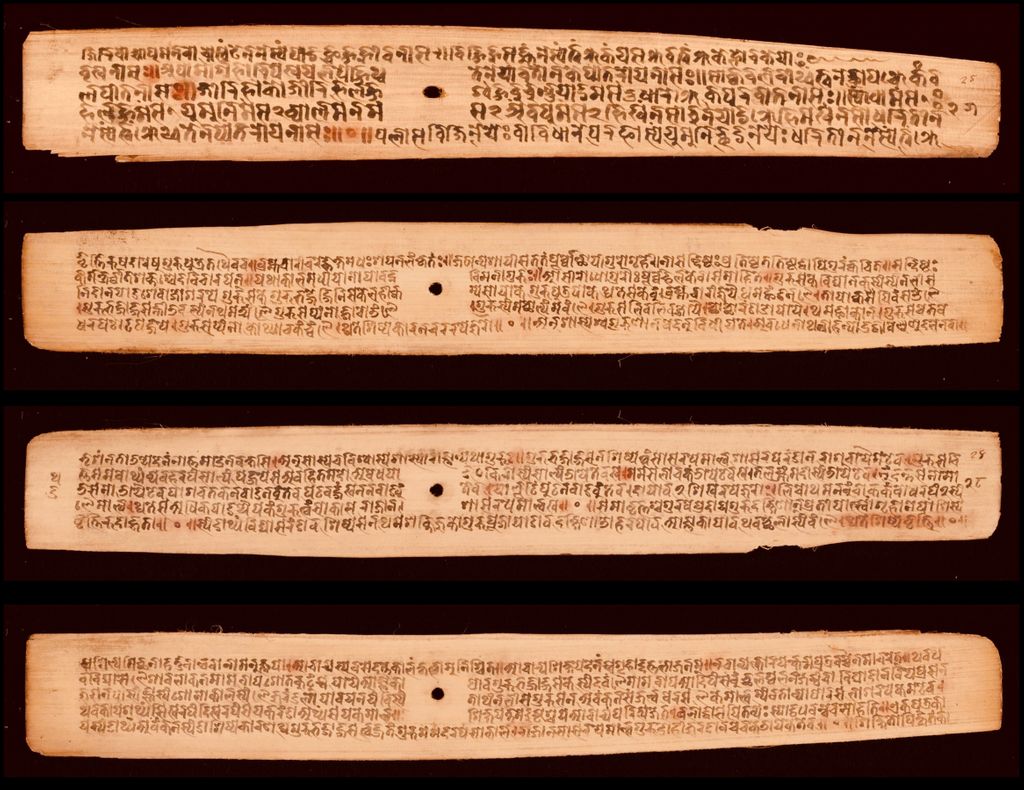
source:- en.wikipedia.org
